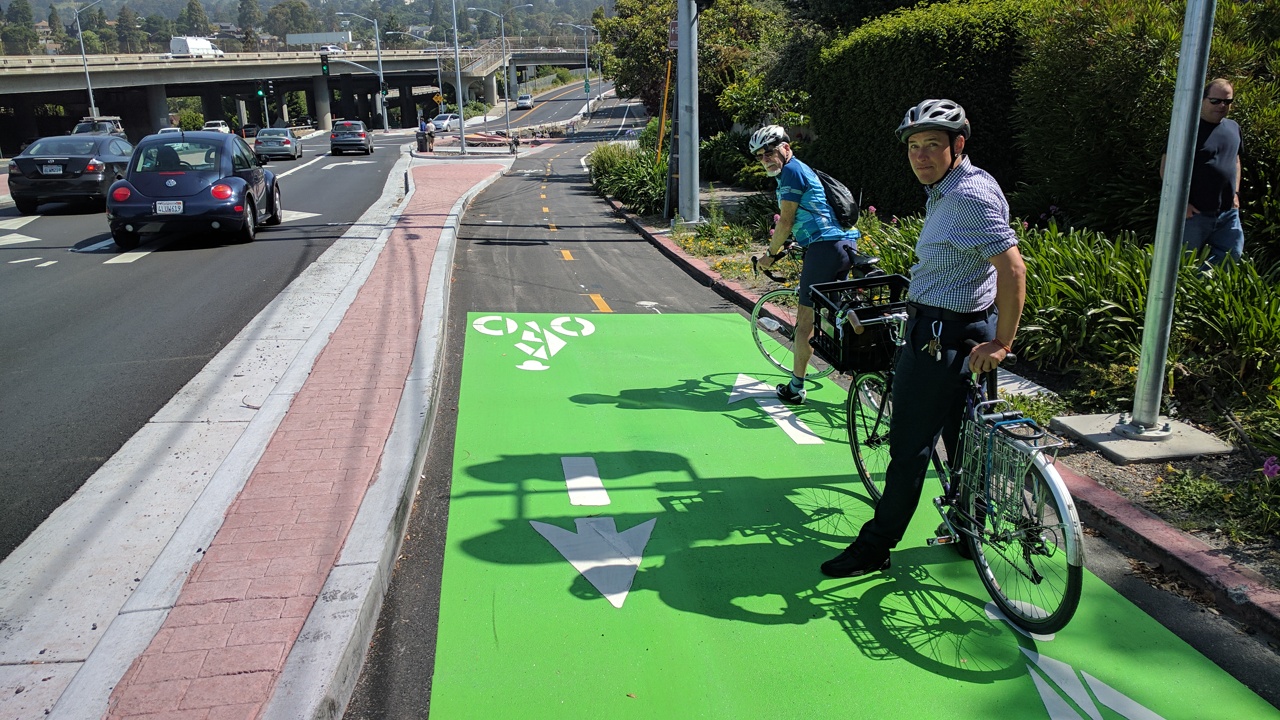Note: GJEL Accident Attorneys regularly sponsors coverage on Streetsblog San Francisco and Streetsblog California. Unless noted in the story, GJEL Accident Attorneys is not consulted for the content or editorial direction of the sponsored content.
For most American communities, things such as protected bike lanes, pedestrian plaza conversions, and bus bulb-outs are not the norm. That means governments don’t have existing bureaucratic structures or processes to make that happen. When we advocate for those things, we need to 1) apply a lot of political power to make it a priority for our politicians and 2) we need to do the work of helping these politicians & bureaucracies navigate from where they are now to where we need them to be.
Across my client sessions and my own advocacy in this space, a common feature in transportation advocacy is hitting the wall of some bureaucracy that can’t seem to figure out how to do better. Often with this there are good politicians who are frustrated with the status quo and the bureaucracy, and are looking for specific policy fixes. As advocates, it’s on us to help chart a workable path forward. It’s a mystery of policy and bureaucracies that we need to solve so the politicians can enact the solution.
Unraveling the mystery of “what’s the official things that needs to happen to shift this government agency” takes a different skill set than most of the advocacy tips I talk about in my posts. Mostly, I talk about how to build and apply political power to get the “yes” you want. But when you’re up against a murky car-centric status quo, you can still get the “yes” from the politicians without getting the changes from the bureaucrats.
In other words– even if you got all the elected leaders in a city to agree to double the width of every city sidewalk, there is no “sidewalk width” dial for them to turn. And if they tell the city administrator to crank that sidewalk width dial up to 11, the city administrator might be just as lost as the politicians are about how to actually make it happen.
Of course, any politician or bureaucrat with drive, ingenuity and some patience could figure out the mystery themselves– but that’s hard work and they’ve got a full plate of other issues to deal with. Help solve the mystery and your odds of winning what you want will skyrocket.
I’ll admit that I’m not a particularly elegant detective when it comes to trying to solve these types of policy mysteries. I’m about as subtle as a hammer. My biggest questions are: “whose fault is this?” “who would be able to fix this if they were given more?” “what things does that person need to be given to make this happen ASAP?” and “where does it say that?” When questions stop producing answers, assertions tend to provoke a response. “So, what you’re saying is that the solution is ____.”
But in digging through this, you’ll get to your answers about where the exact problem is. Maybe there was a city fund to address this problem, but it was raided for other purposes. Maybe there isn’t any legal reason why not, and it’s the city staff that aren’t following through because the idea is new to them. Maybe the politician didn’t actually direct staff to fix the problem but they told you they did. It’s all a mystery and it’s on you and your team to figure it out. Then when you have the answer, you can hopefully get everyone in official positions to enact it and solve the problem.
You might ruffle some feathers in your detective work on the mystery of “what policy is needed to get that road changed to be safer” but when you’re up against a deadly and climate-cooking status quo, sometimes feathers need to be ruffled.
***
Carter Lavin is a climate activist in Oakland, California who helps organizations and individuals build political power, hone strategy, and win campaigns on the local, regional, and state level. Follow his Substack or his website (where a version of this post originally appeared) for more info.





